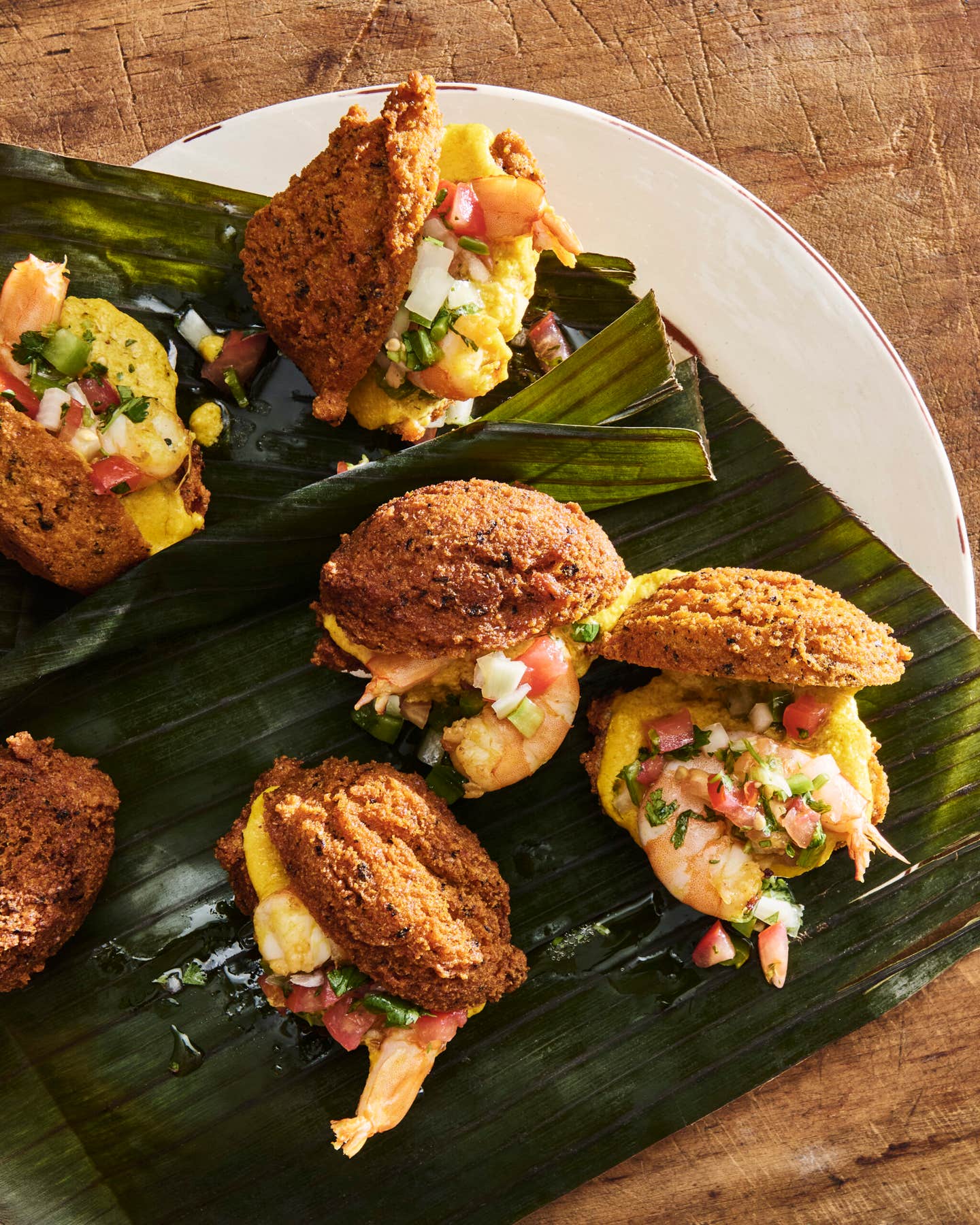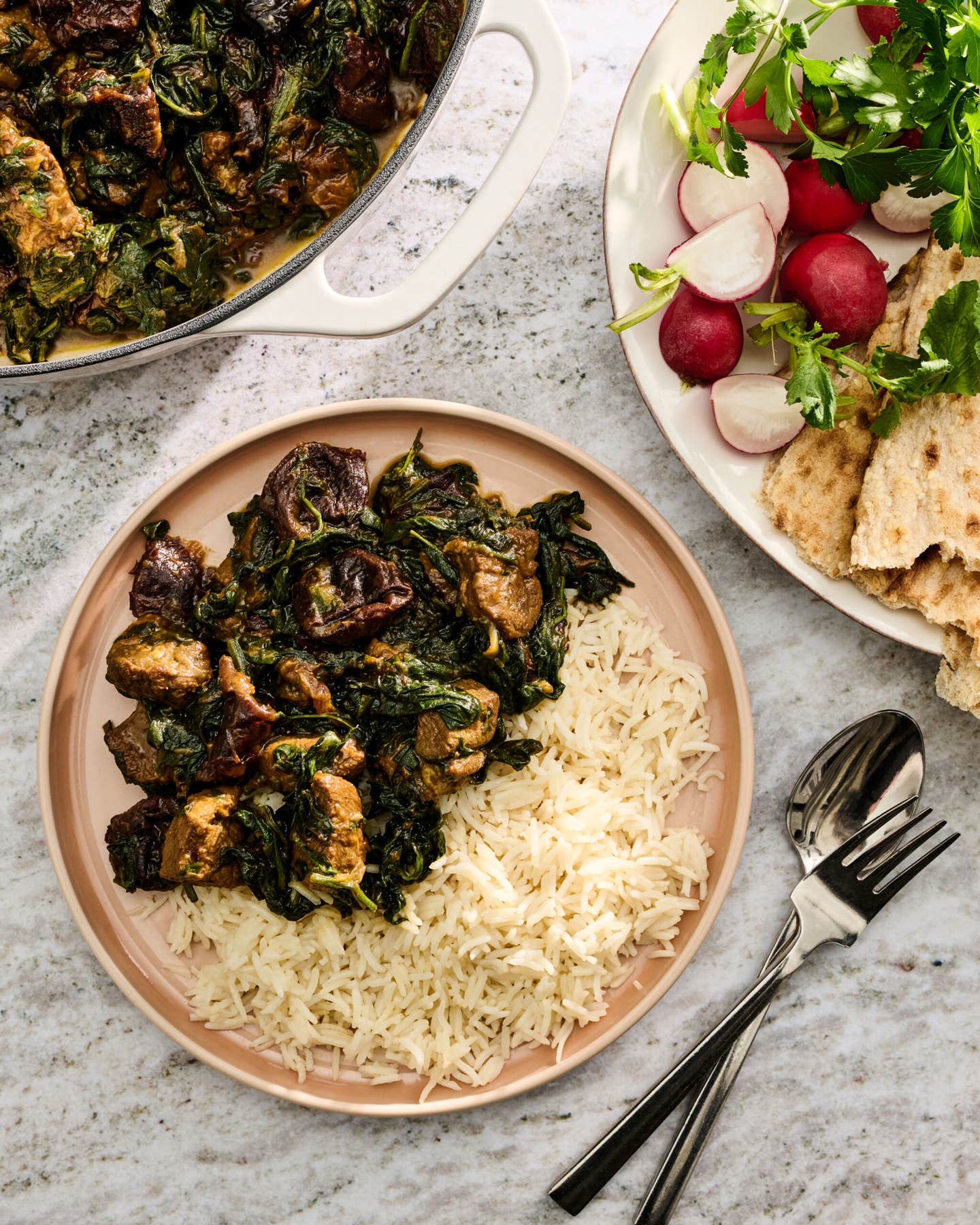
Building Marinades
Marinades keep grilled foods juicy, tender, and flavorful, but in order to do their job, they must include a few key components. Here's our breakdown of ingredients for a great marinade; for more about how to balance them, see our guide to building marinades from Issue #157.
Enzymes
Papayas Sweet, pungent papayas contain the enzyme papain, which breaks down muscle proteins. Pureed, they’re wonderful in short-soak marinades for thick flank or skirt steaks. Fresh Ginger Grated or juiced, fresh ginger contains the enzyme zingibain, which softens meat while imparting a sweet, hot kick to marinades. Fresh Pineapple Juice The fruit’s acidic juice adds bright, sharp, tropical notes to foods, and also contains the enzyme bromelain, a powerful tenderizer. Try it on pork. Kiwifruit In Korea many cooks rub the tart pulp of kiwifruit, which contains the enzyme actinidin, on kalbi, beef short ribs, to sweeten and break down the rib meat before cooking.
Acidic Ingredients
Beer Use lighter lagers and hoppy IPAs to give a mild, yeasty lift to marinades for chicken, pork, and fish; try maltier, sweeter porters and stouts for beef and lamb. Lime juice In the Caribbean, the Middle East, and beyond, lime juice is prized for the citric bite it brings to fish and chicken marinades. Lime zest can be grated into marinades for a floral dimension. (Other citrus–lemons, grapefruit–are also delicious.) Buttermilk Long used in Southern kitchens to tenderize chickens destined for the fryer, tangy buttermilk is a perfect canvas for other flavors. Try it with cilantro and cayenne on grilled chicken. Apple cider vinegar This type of vinegar lends a lush, fruity tartness to marinades and sauces. We love it for all kinds of meats, but it pairs particularly well with pork.
Salts and Savory Ingredients
Worcestershire Sauce Spicy, sweet-tart Worcestershire sauce–a potent mix of anchovies, tamarind, molasses, chiles, and more–enhances the meaty aspect of grilled beef and pork. Salt-Packed Capers We love salt-packed capers coarsely chopped, with olive oil, lemon juice, and fresh oregano, marjoram, or rosemary in Mediterranean-style marinades. They deliver a briny punch. Miso Paste Made of fermented soybeans, umami-rich miso paste adds savory depth to marinades. It’s wonderful combined with rice wine vinegar, sugar, and mirin (Japanese cooking wine) to marinate chicken, fish, or vegetables. Salt Whether kosher, table, sea salt, or a fancier smoked or flavored salt, salt is a key ingredient in marinades. It helps proteins bind with water molecules, letting marinades permeate thoroughly to keep meat juicy.
Other Flavorings
Harissa The piquant Tunisian red pepper paste harissa gives marinades a brilliant crimson hue and garlicky heat. Try mixing it with lemon juice, olive oil, and cumin to marinate chicken or pork. Mustard Its place at a cookout goes far beyond its use as a condiment for burgers and hot dogs; mustard gives marinades brash horseradish-like heat and a vinegar tang that offset meat’s richness. Piloncillo The smoky, caramel-like notes of piloncillo, unrefined Mexican brown sugar, make it ideal for grilled meats. Shaved or grated, it adds an earthy sweetness to marinades. Spices Whether toasted or raw, crushed or whole, spices give marinades warm, distinctive flavor. If using whole spices, such as cardamom pods, cinnamon bark, or star anise, remove them from the marinade prior to grilling.
Keep Reading
Continue to Next Story










